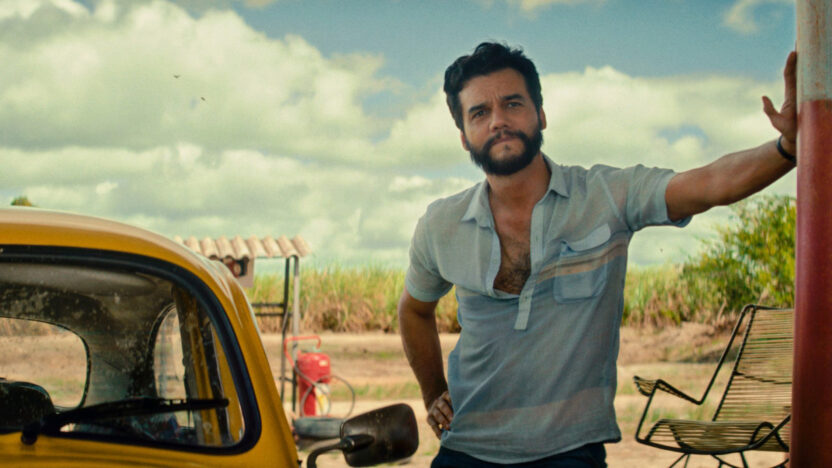Pulling Focus: Dutch production talent goes global – and AI is part of the future
On Tuesday 4 February, IFFR Pro turned the spotlight on Dutch cinema’s evolving place in the world during Pulling Focus: NL 2025. The morning explored how Dutch producers continue to excel in international co-productions, proving that strategic collaboration is key to global success. By the afternoon, the conversation pivoted toward the future, as AI developers showcased tools that could fundamentally reshape filmmaking. Explore the day’s key takeaways below.
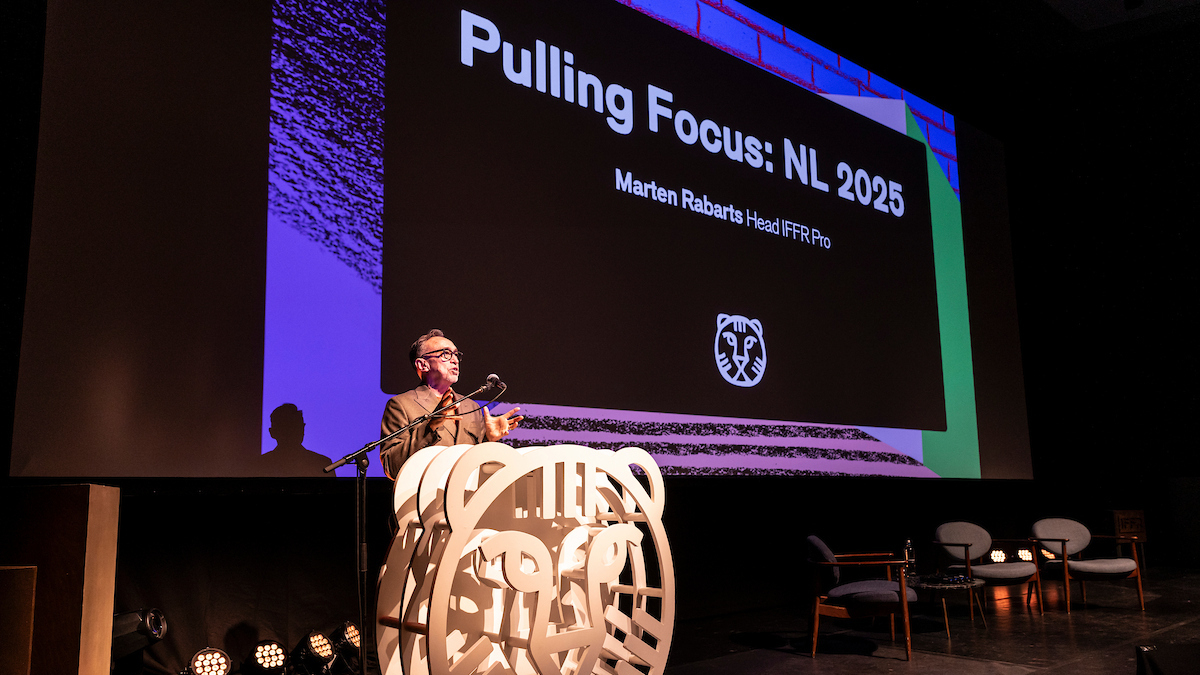
Dutch talent in focus: probably the best co-producers in the world?
The Dutch Focus day launched with an inspiring conversation between director Ena Sendijarević and actress Renée Soutendijk, led by Locarno’s Giona Nazzaro. Their multi-award-winning collaboration Sweet Dreams set the stage for a day spotlighting Dutch creative talent, bridging acclaimed mastery and bold new voices. Following this, the morning’s panel, Probably the Best Co-Producers in the World?, pulled Dutch talent further into focus.
With Dutch producers consistently landing slots at Sundance, Cannes, Venice and Locarno, the industry is proving that smart collaborations lead to global impact. Marten Rabarts, head of IFFR Pro, kicked things off, saying: “There’s an irony to the question mark in the title, but in my opinion, you’re going to meet the best co-producers in the world.” But what makes them so successful? Moderator Jacobine van der Vloed of ACE Producers and the panellists agreed: it’s a mix of trust, transparency and a deep understanding of the creative and financial ecosystem.
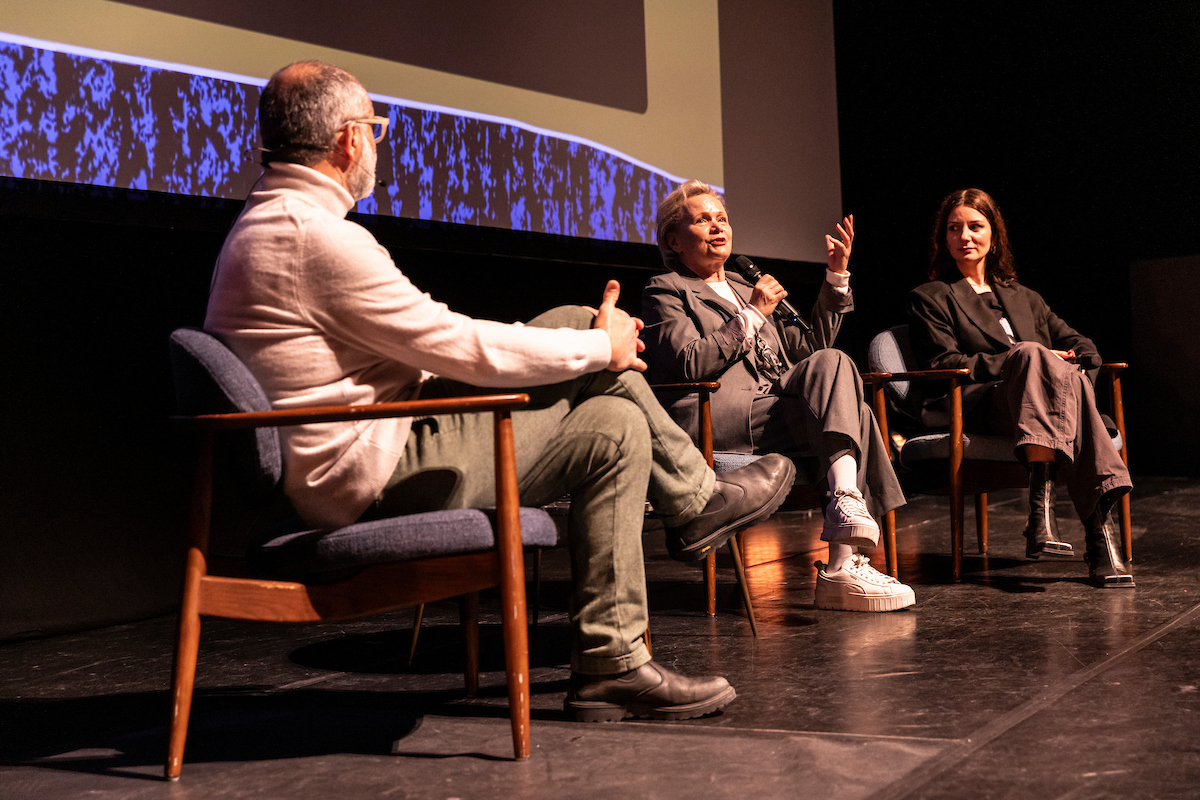
Key takeaways from world-class producers
“Find producers who speak to your personality and trust,” advised Ellen Havenith from PRPL, who co-produced Amanda Nell Eu’s Tiger Stripes. “Legal agreements help, but when conflicts arise, relationships matter.” Co-producing is not just about financing – it’s about creative exchange. Havenith shared how a seven-country co-production for a Cannes-premiering title meant contributions far beyond money: “To me, equality in the co-production is what’s important. We all bring in different elements; the prosthetics were made by a Dutch artist, the music came from Indonesia – it’s about much more than just financial structures.”
Transparency emerged as a non-negotiable. “Be honest about what you can really provide – and what you can’t,” stressed Erik Glijnis of Lemming Film, co-producer of Mikko Makela’s Sebastian. In the end, co-production is a long game. “You’re building bridges that last long after the film,” said Ineke Smits of GoGoFilm, co-producer of IFFR-title Holy Electricity by Tato Kotetishvili, reflecting on her long-term collaborations with Georgian filmmakers. And while success stories are great, ACE Producers’ Jacobine van der Vloed reminded the room that learning from failures is just as crucial: “The mistakes teach us more than the wins.”
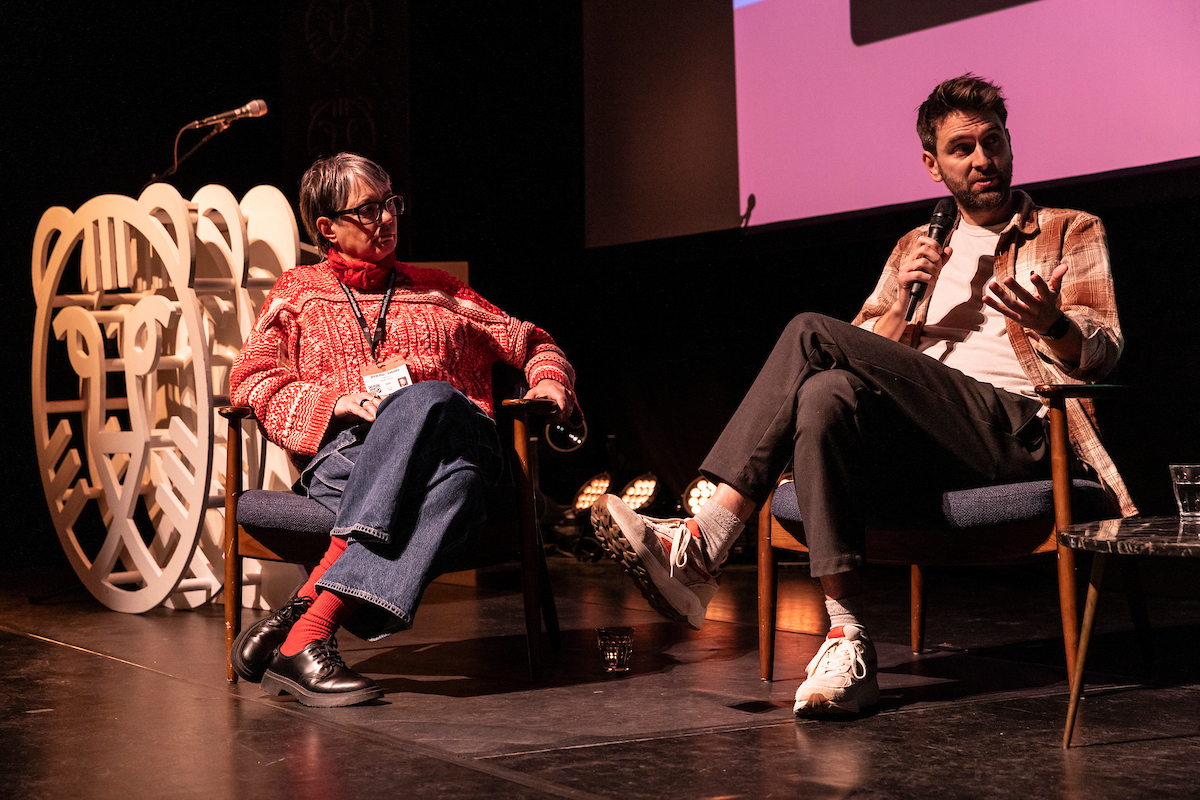
Despite its small size, the Netherlands has much to offer. “We may not have mountains or deserts,” said Denis Vaslin of Volya Films, who co-produced Wang Bing’s monumental Youth: Trilogy, “but we have strong VFX, a talented crew base and robust funding opportunities.” Reflecting on Dutch producers’ role in supporting politically urgent films, Vaslin noted, “It’s crucial to amplify critical voices in today’s world. We need to keep producing opposition films.”
Artificial intelligence as a new creative frontier
If co-productions represent Dutch cinema’s present, AI could very well shape its future. But how does AI fit into a film industry built on human creativity? The panel Harnessing AI for Film brought together filmmakers and AI experts to explore its impact – where the possibilities are thrilling, and a little unnerving. Showcasing real-world applications, the session made a case for where AI can enhance our storytelling and industry.
AI as a creative tool, not a threat
Matthew Blakemore, CEO of AI Caramba!, had a clear message for the filmmaking community: AI is not replacing human creativity – it’s amplifying it. “AI is not destroying creativity because AI is a tool for creatives. They only deliver the best results when they are used by creatives.”
Blakemore demonstrated how rapidly AI tools are evolving, showcasing a selection of multi-tool AI films packed with high-quality video and audio content. He emphasised AI’s power to eliminate time-consuming production tasks, allowing filmmakers to focus on storytelling. In fact, generative AI has been shown to boost worker performance by 40% – a significant shift in an industry where efficiency and budgets are constant concerns.
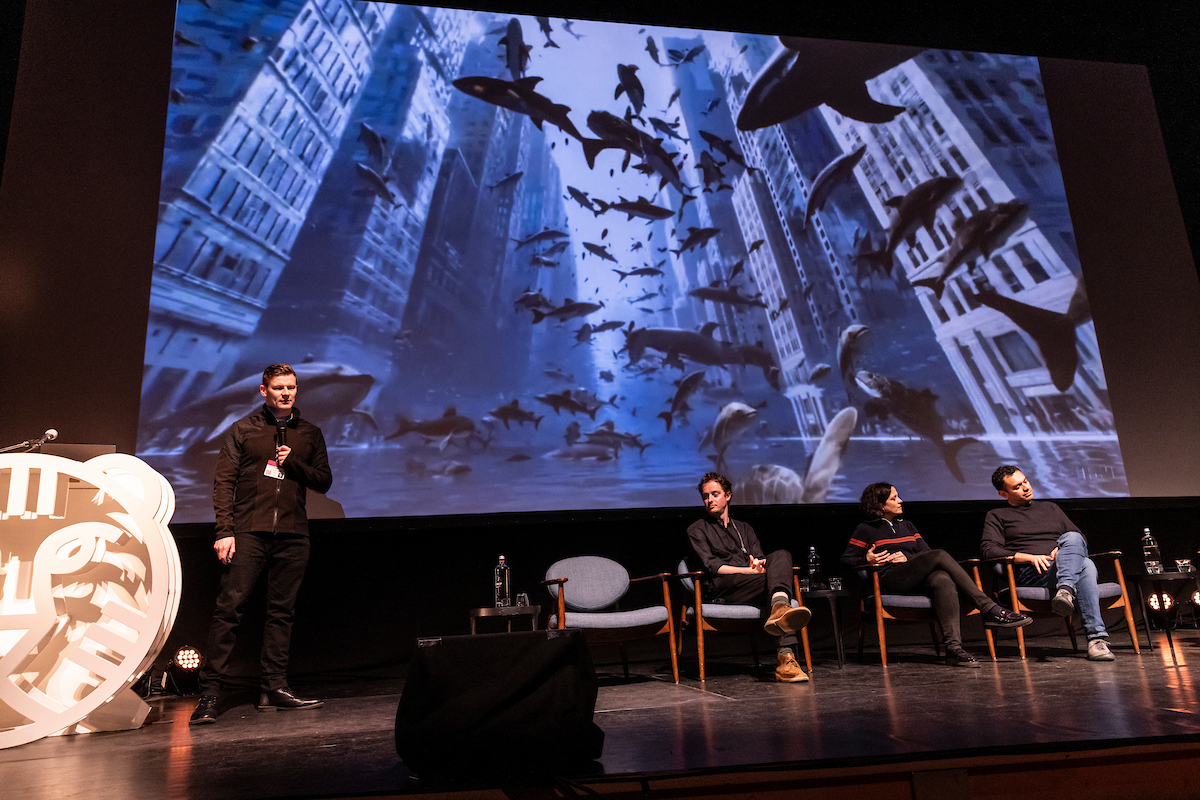
Joshua Dedman of Olsberg SPI provided a broader industry perspective on AI’s impact, emphasising that skill shortages are a critical challenge. “Acute skill shortages exist, driven by high demand,” Dedman noted, particularly in the UK, where AI expertise is scarce. This has created fierce competition for talent, with professionals frequently moving between countries and industries.
He also suggested that while AI is automating technical and administrative tasks, artistic roles may be the least affected – at least for now. Directing, screenwriting, and acting still rely on human intuition and storytelling instincts, making them harder to automate. However, the shift AI represents is unprecedented in scale. Dedman reminded the audience that the film industry has always adapted to new technologies, from sound and colour to digital editing. “The film sector is defined by innovation, and this is the next frontier.”
Expanding filmmaker’s toolkits
AI isn’t just theoretical – it’s already shaping films screening at festivals. Take filmmakers Ana Giralt Gris and Jorge Caballero, whose film The Rock Speaks screened in the IFFR Tiger Shorts Competition. The filmmakers trained AI models to match their own artistic aesthetic, using the technology to enhance, rather than dictate, their film’s visual language.
“Mostly what we are trying to do with this very powerful technology is understand what we can do with it,” said Giralt Gris. AI allowed them to create sequences that would have been impossible with traditional methods, opening up new storytelling approaches. Caballero highlighted its potential: “AI allows you to access places you can’t access – your mind, your memories, the past, and the future.”
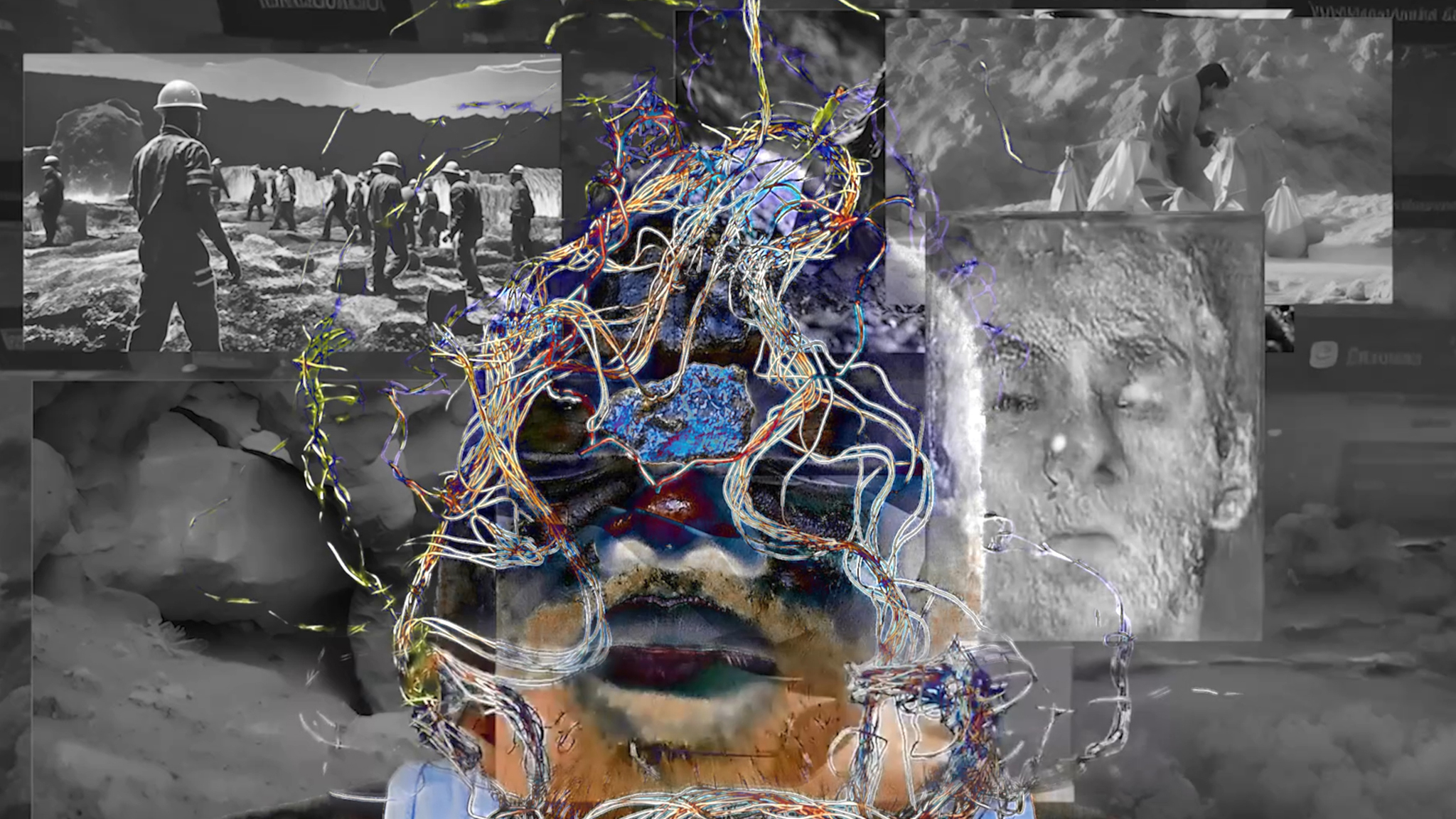
Beyond experimental shorts, AI is also helping filmmakers tackle logistically challenging projects. Another case study examined how AI-assisted filmmaking made a film about mining in the Congo possible, an area difficult to access safely. By generating archival-style footage and reconstructing environments, AI is unlocking new ways to visualise narratives that might otherwise be out of reach due to budgetary, ethical, or logistical constraints.
A shift in perspective
Despite initial scepticism, panellists framed AI as a paradigm shift in filmmaking rather than a fleeting trend. As Caballero noted, “There’s a layer of misunderstanding around AI. Filmmakers often feel like they’re ‘cheating,’ but when they shift their perspective, a whole new world opens up.”
Moderator Sten-Kristian Saluveer closed the panel with a reflection on the polarised nature of AI debates: “Quite often, we judge things by their face value, but as we’ve seen today, AI is a technology that will reshape our industry. It will change the way we do things, and we must adapt, upskill and learn. At the same time, AI is an incredibly powerful tool – one that can provide political and identity agency and bring extraordinary images to the screen.”
Rather than seeing AI as a threat, the conversation at IFFR suggested that it is, in fact, a powerful collaborator – one that could strongly define the future of filmmaking. One resounding sentiment among all panellists was: Filmmakers who approach AI with curiosity rather than fear will gain the most from it.
– by Roxy Merrell
A list with articles
-
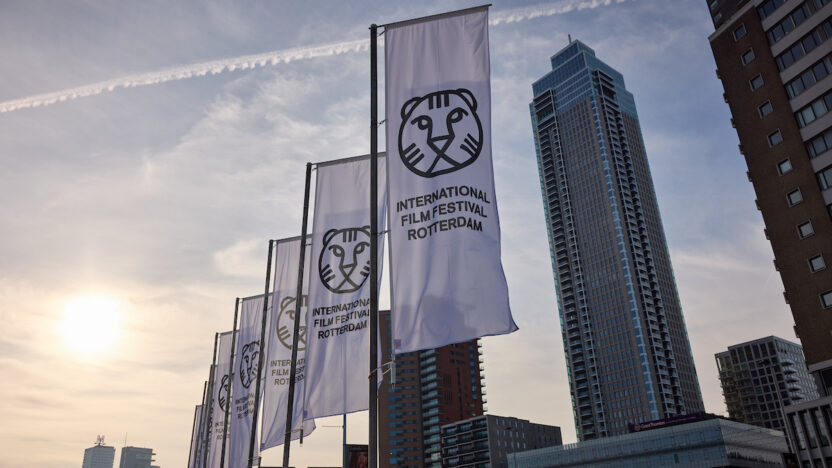
IFFR signs joint statement in support of Berlinale Festival Director Tricia Tuttle and institutional independence
Published on:-
News
-
Press release
-
-
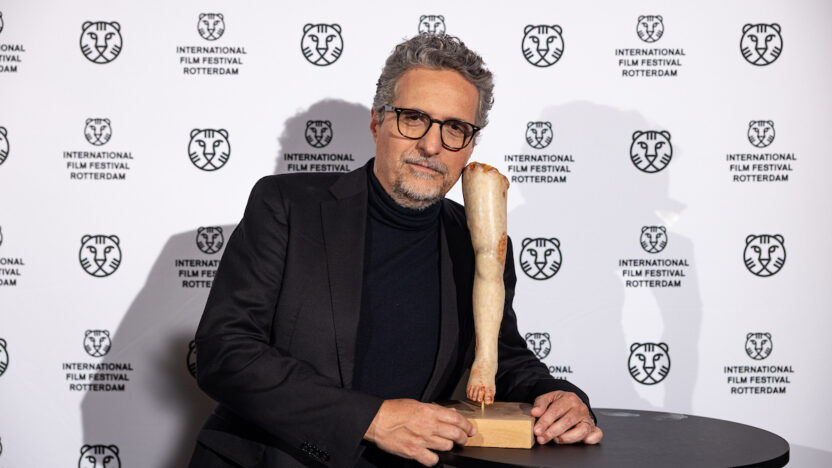
The Secret Agent director Kleber Mendonça Filho remembers his first IFFR visit: “we came with 10 posters and 200 postcards”
Published on:-
Hubert Bals Fund
-
Interview
-
-

